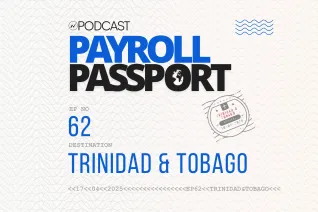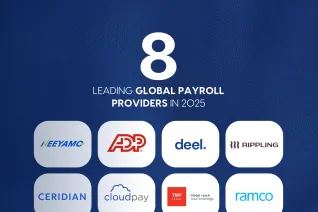Country Spotlight: Payroll in Mexico

With more than 130 million citizens, more than 60% of the workforce in the service sector, and the 15th largest economy in the world by GDP, Estados Unidos Mexicanos, or Mexico, plays a strategically important role in the world economy.
Categorized as a newly industrialized state, companies are actively hiring employees from Mexico as a part of their global expansion strategies. Subsequently, they face the complexities of the Mexican payroll system.
Understanding payroll processing in Mexico
Several inputs are factored into processing payroll in Mexico. Companies must keep track of these inputs to ensure a compliant and hassle-free process.
Work hours and Paid Time Off
Federal Labour Laws establish the maximum regular hours of work. The average work week ranges between 40 to 48 hours. Employees who earn minimum wage can work up to 9 hours of overtime per week. Working days can be extended under extraordinary circumstances, never exceeding three hours a day or three times a week.
Employees are entitled to six days of paid vacation after one year of work. Two days of paid leave are added annually for every subsequent year of service for up to four years.
Employees are also offered a prenatal leave of six weeks and maternity leave of six weeks.
Since there are several differences in work hours and overtime, companies must be equipped with an efficient time management system that can record and track them to be used to calculate payroll.
ALSO READ | Payroll in North America – A Spotlight
Pay Cycle and Frequency
According to Mexican Labor Law, payments could be weekly, bi-weekly or monthly. Still, the payroll cycle is usually bi-weekly, and employees are generally paid on the 15th and the last day of each month.
There are also several other pay considerations, like bonuses and benefits that an employee will receive. These payments are subject to income tax.
Most Mexican states levy relatively low income tax rates on salaries and other employee income, to which the employers contribute.
Companies are mandated to complete all tax filing processes within the stipulated time. This timeline differs for various sectors, including agriculture, the secondary sector (oil, gas, manufacturing, mining), and the services sector (financial services, banking, tourism, etc.).
An integrated payroll provider that automates the process of pay slip calculation based on pay frequency must be available for companies.
ALSO READ | Understanding complexities in managing Cross Border Payroll
Taxation
Tax filings are usually required to be done within two to three days of payroll processing. Companies sometimes have breathing time a day to file their taxes, depending on the sector.
A Mexican employer must register all employees with the Instituto Mexicano del Seguro Social (Mexican Institute of Social Security). Companies looking to set up an entity in Mexico must be aware of this, as they are mandated to register their employees with the Social Security Portal.
Employee contributions to the Mexican Social Security Institute are withheld on salary payments. Some contributions are payable by the employer.
Employers contribute to social security, housing fund, and retirement fund. However, this is taken from employees’ salaries (based on the minimum wage). Contributions to the Mexican Social Security Institute are not subject to income tax.
Employees must also register with the Federal Taxpayer Registry to receive a Tax Identification Card and a Tax ID Number (Clave en el Registro Federal de Contribuyentes – RFC).
The TIN is a unique number assigned by the Mexican Tax Administration Service, which is required to file periodic tax returns or to issue digital tax invoices for the activities carried out or for the income earned.
Mexico has also been enthusiastic about transitioning from paper to digital invoices. The Comprobantes Fiscal Digital por Internet (CFDI) or Digital Fiscal Document through Internet is an electronic invoice format mandated in Mexico and has been in use since 2011.
These invoices must be validated by tax authorities like the Mexican Tax Authority and certified by the Proveedor Autorizado de Certificación (PAC), a certification provider authorized by the Mexican Federal Law Administration.
Companies must stay on top of these tax filings and meet the deadlines. Failing to do so may incur penalties. The penalty for late payment of social security taxes is up to 40% of the amount due.
Payroll providers must track taxation of various sectors and ensure taxes are filed on time. A compliance tracker integrated with a company’s payroll processing system that automates tax calculation would be adept in this situation.

What are the concerns in processing payroll?
Compliance and punctuality are of utmost importance in Mexican payroll processing. Companies that want to establish a business in Mexico require adequate support to carry out transactions and handle regulations. Hence, it is more feasible for companies to employ a global payroll service provider.
Companies must weigh the impact of the above-mentioned concerns and the challenges while outsourcing payroll.
Neeyamo’s Global Payroll solution simplifies your payroll process and provides a hassle-free payday experience.
Time, Compliance, and IntegrationManager are a part of its Global Payroll Tech Stack that simplifies all stages of payroll processing, including data gathering, data validation, and post-payroll activities such as taxation.
As a certified connector with major HRIS providers, we provide a truly global solution that ensures you remain compliant with all statutory requirements. The solution helps you optimize input gathering and validation and standardizes payroll processing.
To gain more insights from our global experts, reach out to us at irene.jones@neeyamo.com.
Latest Resources
Stay informed with latest updates
If you're curious and have a thirst for knowledge pertaining to the HR, payroll, and EOR universe, don't miss out on subscribing to our resources.

















